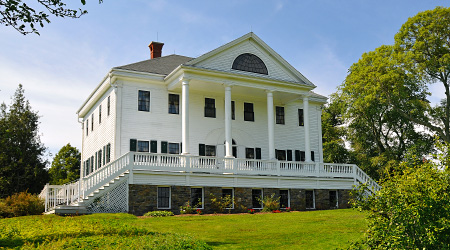What Is The Annual Percentage Rate On A Mortgage?

The Annual Percentage Rate or APR on a mortgage is more than just the interest rate as specified when the loan was assumed. This is due to the fact that the annual percentage rate includes additional costs associated with obtaining a mortgage such as points and other origination fees. Understanding how an annual percentage rate works is the first line of defense in understanding the total cost associated with a mortgage.
The APR will almost always be higher than quoted interest rate when obtaining a loan due to additional fees. When shopping around for a mortgage comparing the APR between lenders can provide clear insight into whether or not certain organizations have significantly higher closing costs or charging more in fees. It is always in a potential homeowner's best interest to get multiple quotes from different lenders and ask any questions that pertain to the annual percentage rate and closing costs.
Some unscrupulous lenders may try hard to convince you that the interest rate, which may actually be quite low, is the only figure to concern yourself with when obtaining a mortgage. This of course is not the case because if the APR is significantly higher than the quoted interest rate then you know that the lender is tacking on significant closing costs and padding their bottom line. The closer the APR is to the interest rate then the lower the associated fees will be for obtaining a mortgage.
Significant differences in the interest rate and the APR are only applicable when comparing apples to apples. If you have your mind set on getting a 30 year FHA mortgage from a bank or credit union then it will be easier comparing APRs to determine whether or not the closing costs are exorbitant or in line with industry standards. If however you're trying to compare a 30 year conventional loan with an adjustable rate or sub-prime loan offered by an online only mortgage institution then it could be difficult to determine if the APR is appropriate or not. This is because different organizations such as online only and brick-and-mortar will have different overhead costs and may have access to different types of underwriting which could significantly alter costs. Individuals with bad credit histories seeking a sub-prime loan may have to pay significantly higher interest rates which would obviously not match up with a conventional loan from a local bank.
It might be possible through negotiation to have certain closing costs waived or points reduced which could help lower the APR and get it closer to the quoted interest-rate. As with most large purchases it can be worthwhile to negotiate because nothing is set in stone. Don't just immediately see that the APR is significantly higher than the interest rate and think that nothing can be done so it's time to move on to the next lender. It doesn't hurt to ask if some of the closing costs can be waived which could help lower the APR and make for a better deal.
Understanding the annual percentage rate on mortgages can seem like a complicated process so if you are unsure on what costs are being included in the calculation be sure to ask the loan officer. You might be surprised that once you understand the process and what fees are being included that you will have more firepower to successfully negotiate better terms and lower closing costs which would lower the annual percentage rate. Shopping around and asking lots of questions will always be the best protection against spending more money than necessary to get a great deal on a mortgage.







